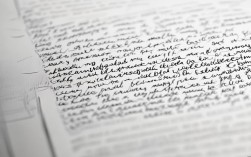The Art of Crafting an Outstanding English Essay: Lessons from Edison’s Legacy

Writing a compelling English essay is both an art and a science. While Thomas Edison is best known for his inventions, his approach to problem-solving and persistence offers valuable lessons for anyone looking to improve their writing skills. Here’s how you can apply Edison’s principles to elevate your English compositions.
Clarity and Precision: The Foundation of Strong Writing
Edison famously said, “There’s a better way to do it—find it.” This mindset applies directly to writing. A well-structured essay requires clear, concise language. Avoid unnecessary jargon or overly complex sentences. Instead, focus on:
- Strong Thesis Statements: Clearly state your main argument in the introduction.
- Logical Flow: Each paragraph should build on the previous one, guiding the reader smoothly.
- Active Voice: Prefer “The scientist conducted the experiment” over “The experiment was conducted by the scientist.”
Research and Preparation: Edison’s Methodical Approach
Edison didn’t invent the light bulb overnight—he tested thousands of materials before succeeding. Similarly, great essays require thorough research:
- Gather Credible Sources: Use academic journals, books, and reputable websites.
- Take Notes Efficiently: Summarize key points in your own words to avoid plagiarism.
- Outline Before Writing: A structured outline prevents disorganized arguments.
Persistence and Revision: The Key to Polished Work
Edison’s relentless experimentation teaches us that first drafts are rarely perfect. Revising is crucial:
- Self-Editing: Read your work aloud to catch awkward phrasing.
- Peer Feedback: A fresh perspective can highlight overlooked errors.
- Grammar Tools: Use tools like Grammarly, but don’t rely solely on them—human judgment is irreplaceable.
Creativity and Originality: Stand Out from the Crowd
Edison thrived on innovation. In writing, originality distinguishes exceptional essays:
- Unique Perspectives: Avoid clichés; offer fresh insights.
- Engaging Hooks: Start with a thought-provoking question or surprising fact.
- Vivid Language: Use metaphors and analogies to make abstract ideas tangible.
Adaptability: Writing for Different Audiences
Edison tailored his inventions to real-world needs. Similarly, adjust your writing style based on purpose:
- Academic Essays: Formal tone, evidence-based arguments.
- Creative Writing: Expressive language, imaginative storytelling.
- Business/Technical Writing: Direct, concise, and action-oriented.
Consistency: Developing a Writing Routine
Edison’s disciplined work ethic ensured steady progress. Apply this to writing:
- Daily Practice: Even 15 minutes of writing sharpens skills.
- Reading Widely: Exposure to diverse styles improves vocabulary and syntax.
- Setting Goals: Aim for incremental improvements, like refining transitions or expanding vocabulary.
Confidence: Trusting Your Voice
Edison believed in his vision despite skepticism. Similarly, confidence in writing comes from:
- Owning Your Ideas: Avoid excessive hedging (e.g., “I think” or “It might be”).
- Balancing Humility and Authority: Acknowledge counterarguments while defending your stance.
Final Thoughts
Great writing, like Edison’s inventions, demands patience, effort, and a willingness to learn from mistakes. By embracing clarity, research, revision, and originality, you’ll craft essays that resonate with readers and stand the test of time. The next time you sit down to write, channel Edison’s persistence—every word is a step toward mastery.











